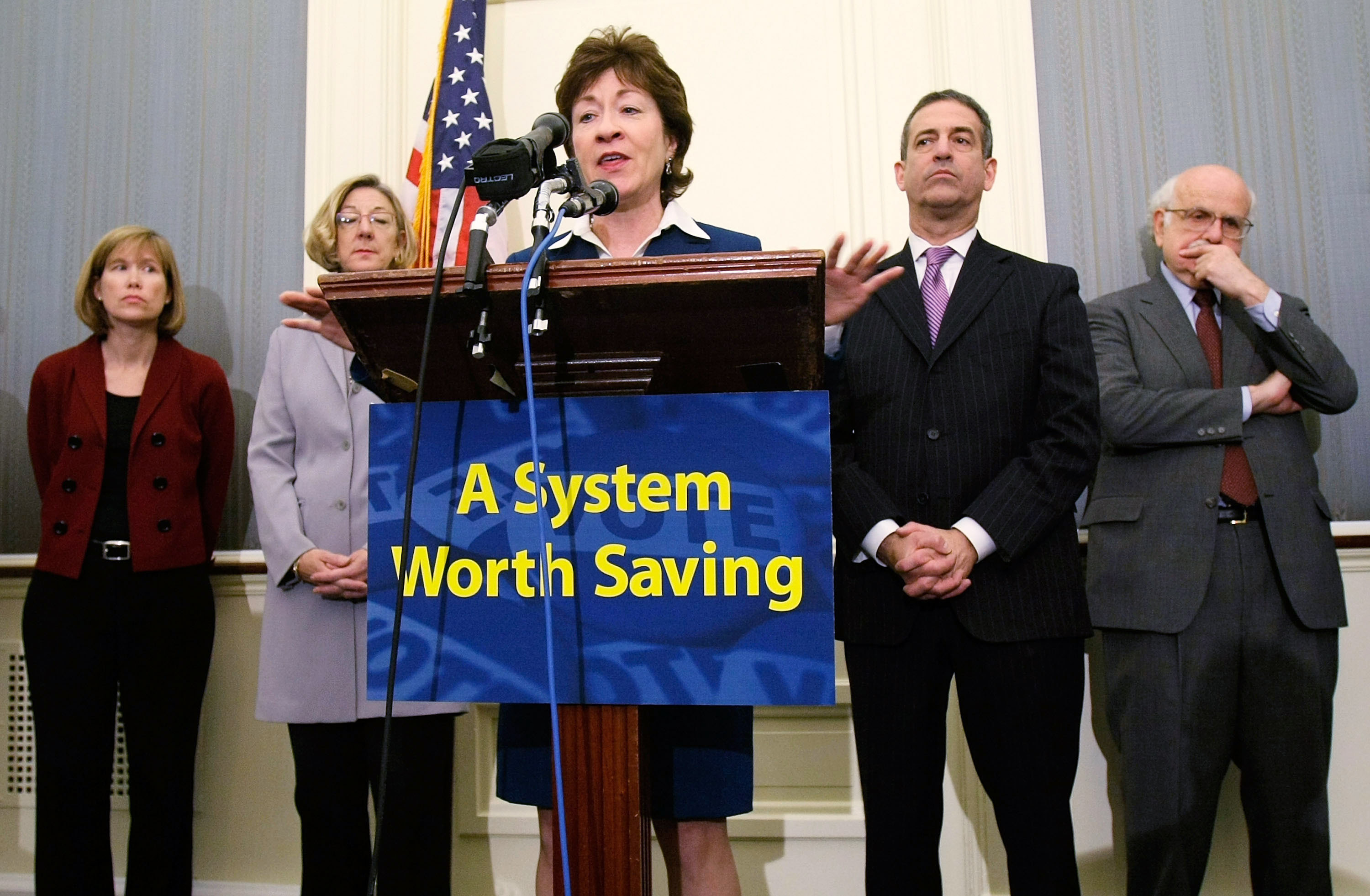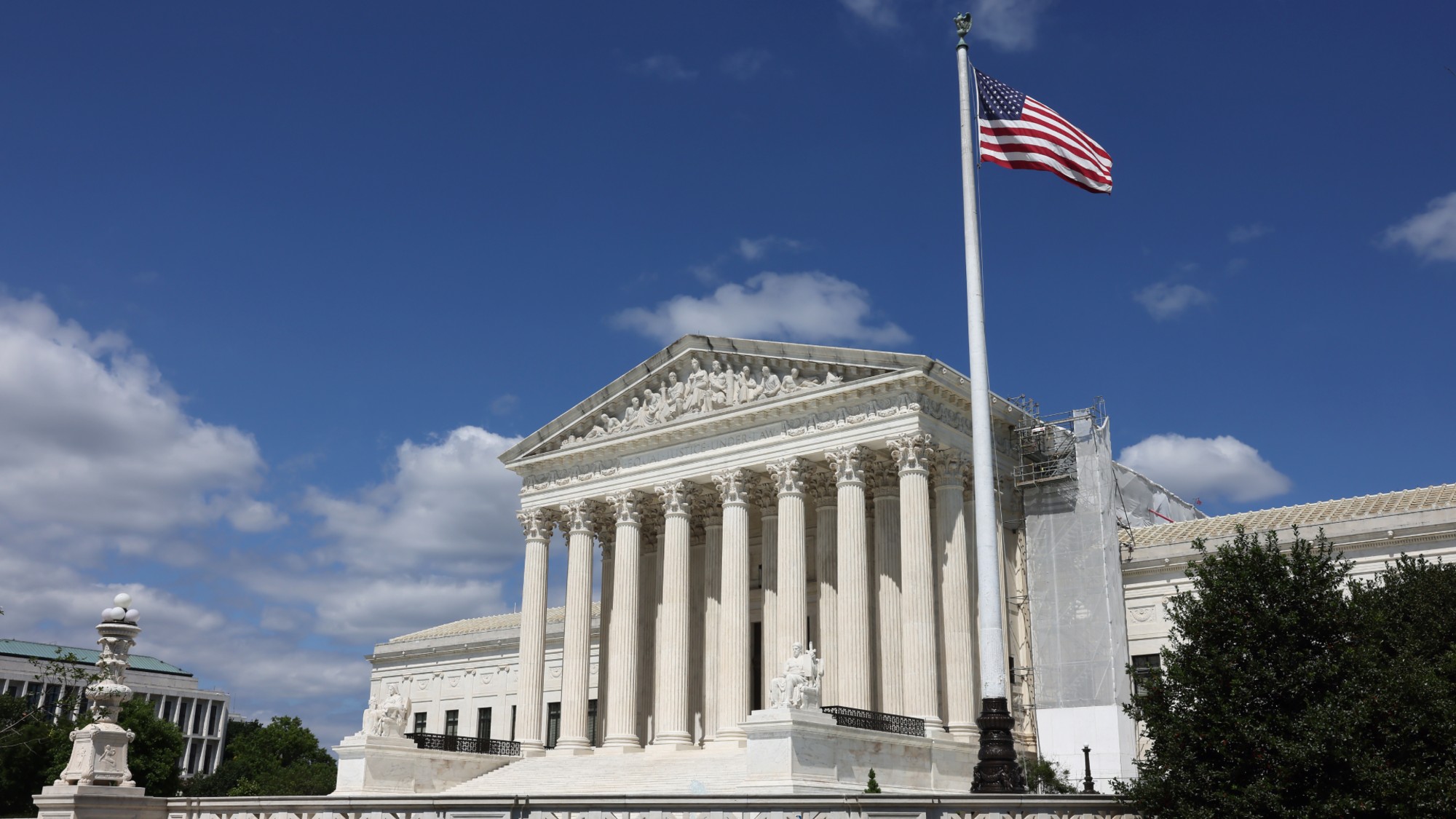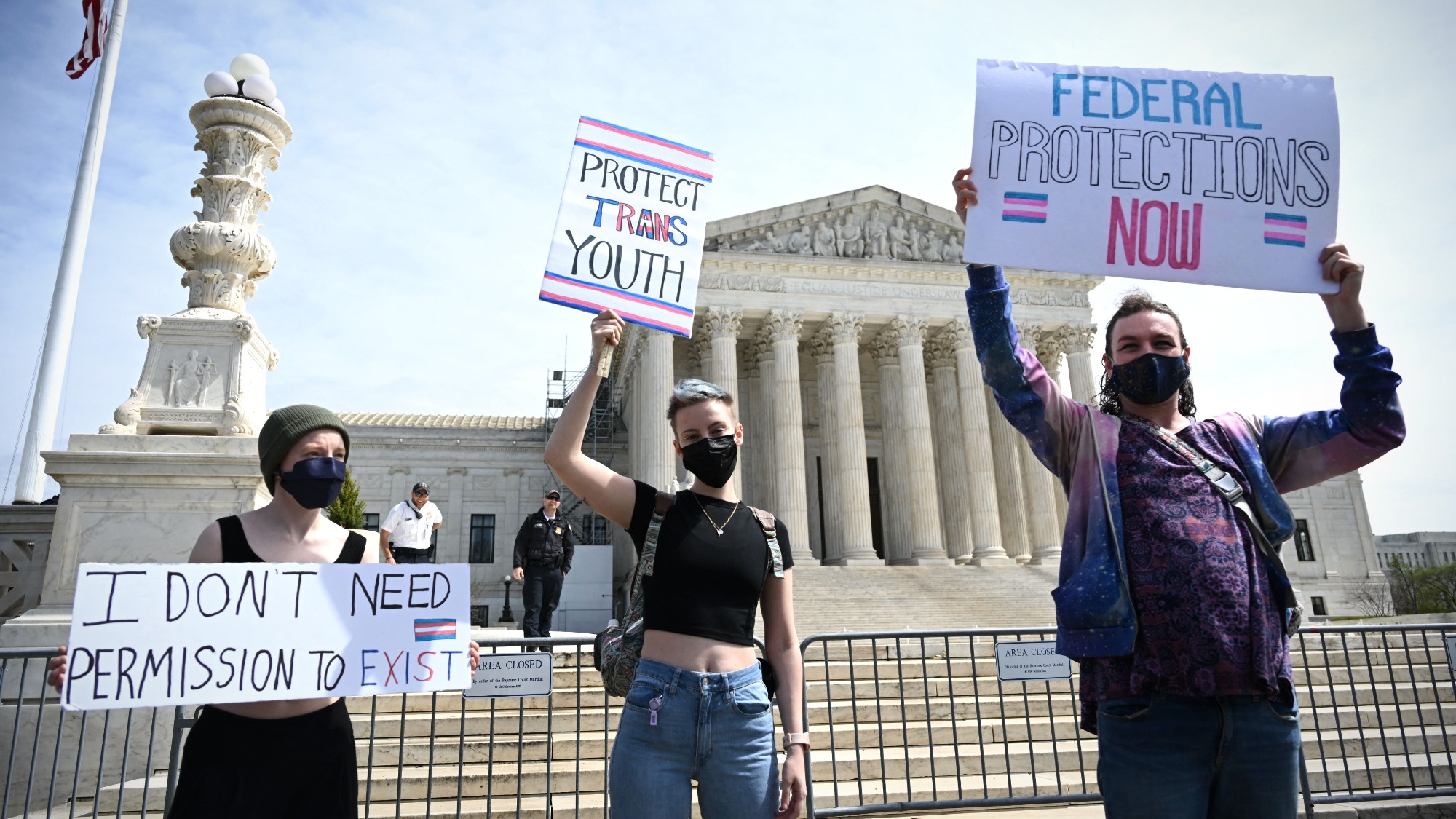This GOP senator says that what Republicans are doing to Obama's Supreme Court nominee is 'simply not fair'

A free daily email with the biggest news stories of the day – and the best features from TheWeek.com
You are now subscribed
Your newsletter sign-up was successful
Sen. Susan Collins (R-Maine.) still hasn't reached a decision on President Obama's Supreme Court nominee Merrick Garland, but she really hopes her party gives her the chance to.
"The only way that the Senate can reach reasonable and informed decisions on nominees to the highest court in the land is for us to follow the regular process," Collins said Wednesday in an interview with the Maine Public Broadcasting Network. "That means having these individual one-on-one meetings and then also the Judiciary Committee, in my view, should hold the kind of in-depth hearings that it has traditionally held."
Thus far, the GOP has adamantly refused to hold hearings for Garland in favor of waiting for the next president to pick a nominee, a move Collins says she thinks is unjust. "I think it's simply not fair and not right to say that no matter who the president was going to nominate, that we should not look at this person the way that we normally would," Collins said.
The Week
Escape your echo chamber. Get the facts behind the news, plus analysis from multiple perspectives.

Sign up for The Week's Free Newsletters
From our morning news briefing to a weekly Good News Newsletter, get the best of The Week delivered directly to your inbox.
From our morning news briefing to a weekly Good News Newsletter, get the best of The Week delivered directly to your inbox.
Right now, she's trying to get that point across to colleagues — though she admits she hasn't had much success so far. "I wouldn't say I've been overwhelmingly successful in convincing the chairman of the Judiciary Committee to hold hearings," Collins said, "but I hope that as time goes on, and as people sit down with Judge Garland and talk to him one-on-one, that perhaps there will be a shift in the position of the chairman of the Judiciary Committee."
A free daily email with the biggest news stories of the day – and the best features from TheWeek.com
-
 Samurai: a ‘blockbuster’ display of Japanese heritage
Samurai: a ‘blockbuster’ display of Japanese heritageThe Week Recommends British Museum show offers a ‘scintillating journey’ through ‘a world of gore, power and artistic beauty’
-
 BMW iX3: a ‘revolution’ for the German car brand
BMW iX3: a ‘revolution’ for the German car brandThe Week Recommends The electric SUV promises a ‘great balance between ride comfort and driving fun’
-
 Munich Security Conference: a showdown between Europe and Trump?
Munich Security Conference: a showdown between Europe and Trump?Today’s Big Question Report suggests European leaders believe they can no longer rely on the US for military support – but decoupling is easier said than done
-
 How far does religious freedom go in prison? The Supreme Court will decide.
How far does religious freedom go in prison? The Supreme Court will decide.The Explainer The plaintiff was allegedly forced to cut his hair, which he kept long for religious reasons
-
 The Supreme Court case that could forge a new path to sue the FBI
The Supreme Court case that could forge a new path to sue the FBIThe Explainer The case arose after the FBI admitted to raiding the wrong house in 2017
-
 ABC News to pay $15M in Trump defamation suit
ABC News to pay $15M in Trump defamation suitSpeed Read The lawsuit stemmed from George Stephanopoulos' on-air assertion that Trump was found liable for raping writer E. Jean Carroll
-
 Judge blocks Louisiana 10 Commandments law
Judge blocks Louisiana 10 Commandments lawSpeed Read U.S. District Judge John deGravelles ruled that a law ordering schools to display the Ten Commandments in classrooms was unconstitutional
-
 Supreme Court to weigh transgender care limits
Supreme Court to weigh transgender care limitsSpeed Read The case challenges a Tennessee law restricting care for trans minors
-
 ATF finalizes rule to close 'gun show loophole'
ATF finalizes rule to close 'gun show loophole'Speed Read Biden moves to expand background checks for gun buyers
-
 Hong Kong passes tough new security law
Hong Kong passes tough new security lawSpeed Read It will allow the government to further suppress all forms of dissent
-
 France enshrines abortion rights in constitution
France enshrines abortion rights in constitutionspeed read It became the first country to make abortion a constitutional right